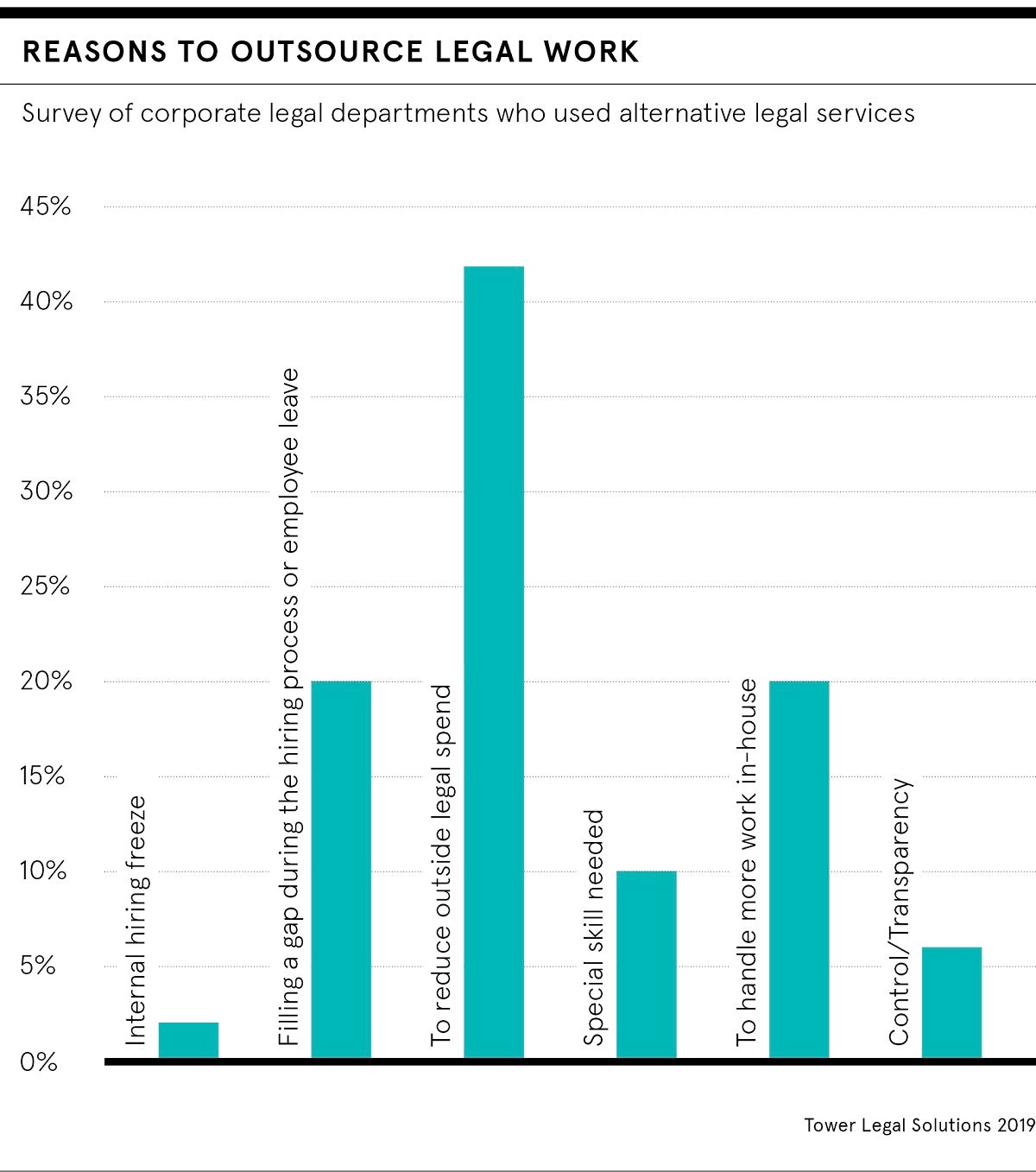There is much talk about how the legal profession is changing and how alternative legal business providers are reshaping the industry. While things are undoubtedly changing through technology and legal process outsourcing, has much really changed? Have attitudes changed?
The age-old phrase “No one got fired for hiring IBM” still rings true for large law firms that are seen as reliable and trustworthy, compared with their more innovative counterparts, even though the former may be slower and more expensive.
In Charles Dickens’ Bleak House we are led satirically through the Victorian courts and the protracted case of Jarndyce and Jarndyce, which results in no money left in the Jarndyce trust, having all been absorbed by years of legal wrangling.
Large companies still pay big fees to big law firms, and appear reluctant to outsource work to alternative providers
If Dickens were to walk through Chancery Lane today, he would find much of it familiar. By contrast, if he were to wander through a modern hospital, he would be overwhelmed and confused by the setting. The moral of the comparison? The legal profession has a lot of modernising to do to catch up with the 21st century.
Legal profession slow to embrace innovation
The legal profession in both eras share a risk-averse nature, but today’s legal business is having to embrace new risks in response to two primary trends. The first is technology use in the law business and leveraging flexible legal process outsourcing arrangements. Second, increasing openness towards using alternative legal services and adapting how lawyers and their clients collaborate.
The two forces are not only changing the legal profession; they are creating a new legal business. Undermining progress are two fundamentals Dickens would easily recognise: fees and incumbent relationships.
Despite the fight to reduce costs and maximise cost-saving, big is still beautiful as legal departments in large companies still pay big fees to big law firms, and appear reluctant to outsource legal work to alternative legal service providers.
The LexisNexis CounselLink 2019 Enterprise Legal Management Trends Report reveals alternative fee arrangements have only risen by a few percentage points, while partner rates at the big law firms continue to widen. Jarndyce and Jarndyce was exhausted by fees, and the devotion to the billable hour in the legal profession suggests there is still a long battle ahead for alternative legal services.
Long-standing partnerships built on trust and habit
Which brings us to relationships. When corporate legal work is outsourced to meet cost-efficient specialised legal needs of the business, the work is doled out by in-house lawyers, many of whom started their careers at law firms and go back to people they know.
Relationships are based on long-standing personal and institutional trust. A Fortune 100 company general counsel, who wishes to remain anonymous, says: “I’ve been here over ten years. We were using Cravath when I got here; I’m sure we’ll be using them after I leave. When it’s a board-level matter, you don’t want to take chances.”

Retaining outside counsel is driven by four main factors: geography, specialised expertise, brand and a lack of internal resources. Big firms reassure clients they answer all four. When in-house counsel are quizzed over costs during procurement, they will dismissively say they are not buying basic office supplies, they are buying legal expertise which comes big rather than cheap.
Alternative legal services more cost efficient
However, according to a recent survey by Tower Legal Solutions, managing outside counsel spend is driving the use of alternative legal services, with nearly 60 per cent of respondents saying this and confirming they use alternative legal services.
“Over the last couple of years, we’ve seen corporations implementing legal operations departments and it’s to manage outside spend, and also to bring in new operating procedures, implementing best practices and technology,” says Leslie Firtell, chief executive and founder of Tower Legal Solutions.
EY’s Reimagining the Legal Function Report 2019 suggests firms are still at a tipping point. “Our survey shows that while an average of 33 per cent of businesses are already outsourcing a range of legal function processes, such as legal‑entity management, a larger number (41 per cent) would consider doing so,” the report says. “It is noticeable, however, that a significant number (26 per cent) indicated that they would not consider outsourcing.”
Mike Fry, EY global head of entity compliance and governance, says: “Many larger organisations are strategically assessing which activities they can appropriately outsource. Typically, it’s activities that are lower risk and lower value, but mandatory, either because they are critical to the business or are a statutory requirement.”
Big firms branching out
Another obstacle is talent, with almost three in five businesses (59 per cent) facing challenges in attracting and retaining the appropriate people needed. This suggests there may be a talent battle to be won, either by bringing in-house or being more nimble in leveraging alternative legal services. A balance of technical expertise, efficient technology, workflow management and leveraging legal process outsourcing will be critical to success.
For their part, in the spirit of “if you can’t beat them, join them”, big law firms are creating their own alternative legal services. Some law firms are using the alternative legal services model to forge partnerships with existing providers. The larger law firms are looking to work with multiple providers to offer a suite of legal solutions to their clients.
Thomson Reuters’ Alternative Legal Service Providers 2019 report says one third of law firms plan to establish their own ALSP affiliate within the next five years. By creating innovation labs and so-called “newlaw” products, big law firms may get the best of both worlds: well-paid partners and nimble service.
Legal profession slow to embrace innovation
Long-standing partnerships built on trust and habit





